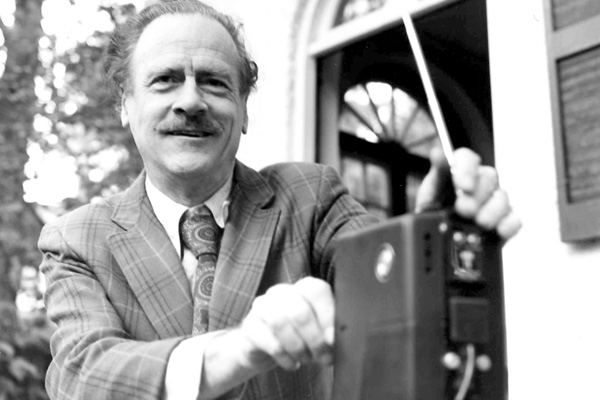|
 McLuhan’s definition of media as “The Extensions of Man” appeared first in Understanding Media in 1964, and is at the centre of Genre Implosion’s interest in his ideas. McLuhan, near the end of his life and with the substantial help of his son Eric McLuhan defined an heuristic device he called the Laws of Media consisting of four questions which could be asked about any medium: “What does it Extend?”, “What does it Retrieve?”, “What does it Obsolesce?” and “What does it Reverse into?” Genre Implosion argues that musical genres behave like media according to McLuhan’s initial “Extensions of Man” hypothesis, and his much later Laws of Media. McLuhan’s definition of media as “The Extensions of Man” appeared first in Understanding Media in 1964, and is at the centre of Genre Implosion’s interest in his ideas. McLuhan, near the end of his life and with the substantial help of his son Eric McLuhan defined an heuristic device he called the Laws of Media consisting of four questions which could be asked about any medium: “What does it Extend?”, “What does it Retrieve?”, “What does it Obsolesce?” and “What does it Reverse into?” Genre Implosion argues that musical genres behave like media according to McLuhan’s initial “Extensions of Man” hypothesis, and his much later Laws of Media.
Herbert Marshall McLuhan was born in Edmonton, Alberta in 1911 to Scotch-Irish Protestants: his father an insurance salesman descended from a long line of farmers, and his mother a sophisticated well-read elocutionist known and travelled widely in theatre circles. His mother, Elsie Hall McLuhan ensured that both her sons pursued intellectual careers, and that Marshall, the academic star, would be educated abroad. When Marshall was 9 they moved to Winnipeg, where he would attend high school and the University of Manitoba, completing Bachelor’s and Master’s degrees in English literature by 1933, proceeding on scholarship to Cambridge University in England thereafter. The 1930s literary life at Cambridge (and indeed at Oxford, and in London) was teeming with scholars taking an interest not in the traditional brokers of power, but in the lower orders, the “masses”, some as Marxists and some as scholars of what would later be called ‘popular culture’. Moreover, there was brewing a resurgence of interest and credibility of Catholicism within the literati, due at least in part to the work of Hilaire Belloc and G.K. Chesterton. In his foreword to a collections of McLuhan interviews and letters, Tom Wolfe observed the profound impact this unique environment had on McLuhan:
Two of the most brilliant and seemingly cynical of the London literati, W.H. Auden and Evelyn Waugh, converted to Catholicism in this period. Likewise, Marshall McLuhan. He became a convert to the One Church – and to the study of popular culture. Although almost nothing in McLuhan’s writing was to be overtly religious, these two passions eventually dovetailed to create McLuhanism.
McLuhan finished at Cambridge in 1942, returning to North America with second Bachelor’s and Master’s degrees, and a Doctorate in English Literature, teaching at a number of Universities and finally joining the faculty of St. Michael’s College at the University of Toronto. It was here, under the influence of economic historian Harold Innes, that he formulated the basic tenet of McLuhanism, that any great new medium of communication alters the entire outlook of the people who use it.
McLuhan’s master stroke, which rocketed him to international celebrity (eventually to be followed by near complete dismissal by academia in the decades which followed) came in 1964: Understanding Media: The Extensions of Man, from which his most known aphorism “The Medium is the Message” sprang. McLuhan, while accurately predicting the spread of television all over the world and the now-familiar sensory paradigm shift evident in the usurped primacy of the visual print medium by what he called the “audio-tactile” medium of television, he also foresaw the unification of the entire world into a “global village”, which in a rare religious reference he saw, at least potentially, as a technologically-enabled manifestation of the body of Christ with all humanity as members.
McLuhan’s popularity grew astonishingly through the 1960s, but by the mid-1970s an academia which he routinely dismissed as regressive, incompetent and hide-bound to paradigms that were long expired was managing to turn the tables. If “turnabout is fair play”, the aloofness and dismissal McLuhan had showered upon the literary and scientific communities that opposed him was fairly turned back upon him, and he died an ingenious, and to the end arrogant, has-been in 1980.
Read Chapter 3, Musical Genre as Medium from Imploding Musical Genre in PDF format here.
There are also three recent McLuhan-oriented essays or addresses in the Genre Study area of this site:
- Country Music in Radio Space (paper for the joint York University Musicology/McMaster Music Criticism Colloquium (2005)
- McLuhan at Mass (Calgary Organ Symposium 2010), and,
- A Beloved Oratorio ‘Handeld’ by Marshall McLuhan and George Bernard Shaw: The Medium is the Messiah
(a pre-concert chat given in December 2012 at the River Run Centre in Guelph prior to a performance of Handel’s Messiah by the Guelph Chamber Choir and Musica Viva Orchestra).
|